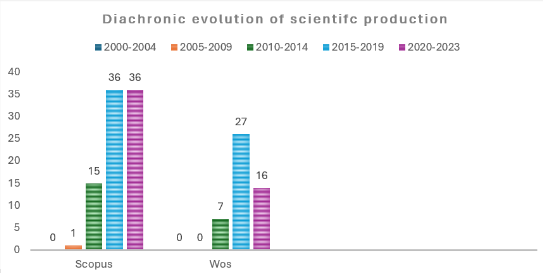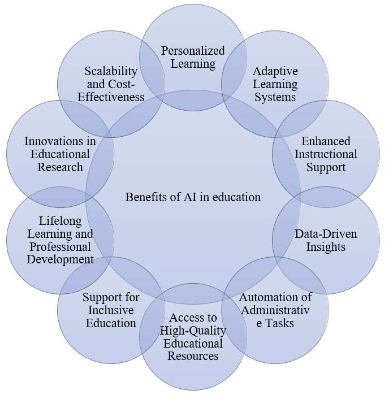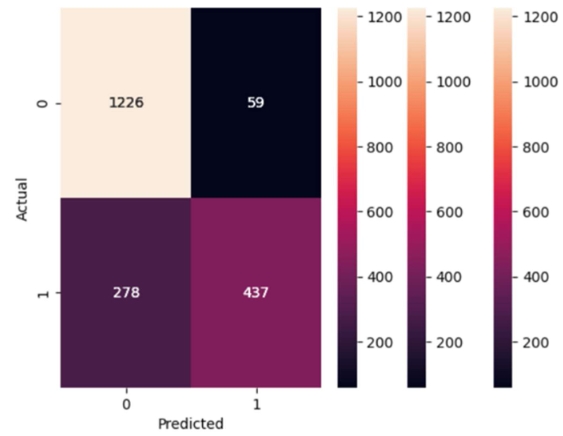The impact of the COVID-19 pandemic on the soft skills of lecturers
Abstract
Education institutions quickly made the switch to remote teaching and learning because of the COVID-19 pandemic’s extraordinary problems. This study intends to investigate how the pandemic has affected lecturers’ soft skills, which are vital non-technical and interpersonal skills such as efficient communication, teamwork, adaptation, empathy, problem-solving, and leadership. Data were gathered from lecturers who had firsthand experience with the change to remote teaching through a qualitative study methodology that included interviews and focus group discussions. The research shows that lecturers used new tools, modified their teaching methods, and navigated the virtual environment with amazing flexibility and adaptation. Communication skills improved as lecturers used digital tools to interact with students and offer support. With lecturers attending to academic demands and emotional well-being, empathy and student assistance emerged as crucial. Through creative virtual methods, cooperation and teamwork were promoted. To overcome obstacles, problem-solving skills were used. The study advances knowledge about how the pandemic affected lecturers’ soft skills. The COVID-19 pandemic has significantly changed how instructors use their soft skills. Rapid technological advancement, improved communication abilities, adaptability and flexibility, student support and empathy, and teamwork have all been identified as major areas of change. To successfully adapt to changing educational environments and guarantee the delivery of high-quality education, lecturers will need to further develop these soft skills in the future. By accepting these adjustments, lecturers may not only deal with the difficulties caused by the pandemic but also create a future-focused, welcoming learning atmosphere for their students. Future research should focus on long-term effects, quantitative validation of findings, and evaluation of interventions to improve lecturers’ soft skills in distance learning. In light of changing educational environments, such research can promote lecturers’ professional growth and inform pedagogical methods.
References
[1]Uzorka A and Makeri YA. Academic challenges faced by students in higher education during COVID-19 pandemic. International Journal of Research and Innovation in Social Science (IJRISS). 2020; 4(7): 421-425.
[2]García-Morales VJ, Garrido-Moreno A, Martín-Rojas R. The Transformation of Higher Education After the COVID Disruption: Emerging Challenges in an Online Learning Scenario. Frontiers in Psychology. 2021; 12. doi: 10.3389/fpsyg.2021.616059
[3]Lukas BA, Yunus MM. ESL Teachers’ Challenges in Implementing E-learning during COVID-19. International Journal of Learning, Teaching and Educational Research. 2021; 20(2): 330-348. doi: 10.26803/ijlter.20.2.18
[4]Simamora RM. The Challenges of Online Learning during the COVID-19 Pandemic: An Essay Analysis of Performing Arts Education Students. Studies in Learning and Teaching. 2020; 1(2): 86-103. doi: 10.46627/silet.v1i2.38
[5]Groeneveld W, Becker BA, Vennekens J. Soft Skills: What do Computing Program Syllabi Reveal About Non-Technical Expectations of Undergraduate Students? In: Proceedings of the 2020 ACM Conference on Innovation and Technology in Computer Science Education; 15-19 June 2020; Trondheim, Norway. pp. 287-293. doi: 10.1145/3341525.3387396
[6]Uzorka A, Makumbi D, Kalabuki K. Lifelong learning and skill development for project managers in the dynamic labor market landscape. Human Resources Management and Services. 2024; 6(2). doi: 10.18282/hrms.v6i2.3401
[7]Mitashree Tripathy. Relevance of Soft Skills in Career Success. MIER Journal of Educational Studies Trends & Practices. 2021; 10(1): 91-102. doi: 10.52634/mier/2020/v10/i1/1354
[8]Jacques S, Ouahabi A, Lequeu T. Remote Knowledge Acquisition and Assessment During the COVID-19 Pandemic. International Journal of Engineering Pedagogy (iJEP). 2020; 10(6): 120. doi: 10.3991/ijep.v10i6.16205
[9]Kurbakova S, Volkova Z, Kurbakov A. Virtual Learning and Educational Environment: New Opportunities and Challenges under the COVID-19 Pandemic. In: Proceedings of the 2020 The 4th International Conference on Education and Multimedia Technology; 19-22 July 2020; Kyoto, Japan. pp. 167-171. doi: 10.1145/3416797.3416838
[10]Alawamleh M, Al-Twait LM, Al-Saht GR. The effect of online learning on communication between instructors and students during Covid-19 pandemic. Asian Education and Development Studies. 2020; 11(2): 380-400. doi: 10.1108/aeds-06-2020-0131
[11]Gamage KAA, Wijesuriya DI, Ekanayake SY, et al. Online Delivery of Teaching and Laboratory Practices: Continuity of University Programmes during COVID-19 Pandemic. Education Sciences. 2020; 10(10): 291. doi: 10.3390/educsci10100291
[12]Brion C, Kiral B. COVID-19 Crisis Challenges and Management Strategies of Educational Leaders in America. International Journal of Contemporary Educational Research. 2022; 8(4): 170-183. doi: 10.33200/ijcer.943568
[13]Pacansky-Brock M, Smedshammer M and Vincent-Layton K. Humanizing online teaching to equitize higher education. Current Issues in Education. 2020; 21(2).
[14]Cavinato AG, Hunter RA, Ott LS, et al. Promoting student interaction, engagement, and success in an online environment. Analytical and Bioanalytical Chemistry. 2021; 413(6): 1513-1520. doi: 10.1007/s00216-021-03178-x
[15]Bozkurt A, Jung I, Xiao J, et al. A global outlook to the interruption of education due to COVID-19 Pandemic: Navigating in a time of uncertainty and crisis. Asian Journal of Distance Education. 2020; 15(1): 1-126.
[16]Ibrahim MM, Malik M, Avianti RA. Lecturers’ perceptions of authentic assessment in times of COVID-19 pandemic: a case of Indonesian universities. Journal of Applied Research in Higher Education. 2022; 15(5): 1514-1529. doi: 10.1108/jarhe-02-2022-0041
[17]Şenel S, Şenel HC. Remote Assessment in Higher Education during COVID-19 Pandemic. International Journal of Assessment Tools in Education. 2021; 8(2): 181-199. doi: 10.21449/ijate.820140
[18]Ratten V. The post COVID-19 pandemic era: Changes in teaching and learning methods for management educators. The International Journal of Management Education. 2023; 21(2): 100777. doi: 10.1016/j.ijme.2023.100777
[19]Sumardi S, Nugrahani D. Adaptation to emergency remote teaching: pedagogical strategy for pre-service language teachers amid COVID-19 pandemic. Turkish Online Journal of Distance Education. 2021; 22(2): 81-93. doi: 10.17718/tojde.906553
[20]Aidoo B, Macdonald MA, Vesterinen VM, et al. Transforming Teaching with ICT Using the Flipped Classroom Approach: Dealing with COVID-19 Pandemic. Education Sciences. 2022; 12(6): 421. doi: 10.3390/educsci12060421
[21]Siswati S, Astiena AK and Savitri Y. Evaluation of online-based student learning: models during new normal pandemic Covid-19 in Indonesia. Journal of Nonformal Education. 2020; 6(2): 148-155.
[22]Azizaha YN, Rijalb MK, Rumainurc UNR, et al. Transformational or transactional leadership style: Which affects work satisfaction and performance of Islamic university lecturers during COVID-19 pandemic. Systematic Reviews in Pharmacy. 2020; 11(7): 577-588.
[23]Zieher AK, Cipriano C, Meyer JL, et al. Educators’ implementation and use of social and emotional learning early in the COVID-19 pandemic. School Psychology. 2021; 36(5): 388-397. doi: 10.1037/spq0000461
[24]Tucker L, Quintero-Ares A. Professional learning communities as a faculty support during the COVID-19 transition to online learning. Online Journal of Distance Learning Administration. 2021; 21(1): 1-18.
[25]Zhu X, Shek DTL, Chan CHM. Promoting Service Leadership Qualities and Well-Being among University Students through an Online Course during COVID-19 Pandemic. International Journal of Environmental Research and Public Health. 2021; 18(15): 8162. doi: 10.3390/ijerph18158162
[26]Bagwell J. Leading Through a Pandemic: Adaptive Leadership and Purposeful Action. Journal of School Administration Research and Development. 2020; 5(S1): 30-34. doi: 10.32674/jsard.v5is1.2781
[27]Vekić-Kljaić V, Mlinarević V. Professional development of educators’ online learning during the COVID-19 pandemic in the Republic of Croatia. SN Social Sciences. 2022; 2(10). doi: 10.1007/s43545-022-00527-0
[28]Aagaard EM, Earnest M. Educational leadership in the time of a pandemic: Lessons from two institutions. FASEB BioAdvances. 2020; 3(3): 182-188. doi: 10.1096/fba.2020-00113
[29]Kruse SD, Hackmann DG, Lindle JC. Academic Leadership During a Pandemic: Department Heads Leading with a Focus on Equity. Frontiers in Education. 2020; 5. doi: 10.3389/feduc.2020.614641
Copyright (c) 2024 Afam Uzorka, David Makumbi, Kagezi Kalabuki

This work is licensed under a Creative Commons Attribution 4.0 International License.









